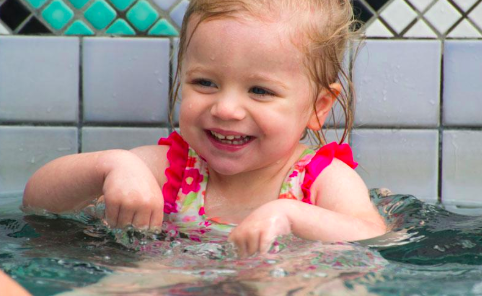Teaching Kids to Love the Water - Why We Make that Our Driving Mission
One of my favorite articles is ‘Is Play in Early Education Really Necessary’, by Deborah McNelis. In the article, she talks about how play is perhaps THE most essential aspect of learning and why it is so crucial to brain development and real learning in young children.The paragraph that really stands out for me though, is this one:“It is necessary to not only have play take place at home, but children need developmentally appropriate explorative and imaginative play and also lots of physical activity opportunities at school. A newborn is not expected to crawl, a 2 month old to ride a bike, or a 6 month old to play the guitar. We do not expect those things because we know babies are not developed enough for those skills or activities. It is the same for academics and a young brain. We should not be pushing babies to read and 3 year olds to write. These are not the experiences they should be having to support the healthiest brain connections for later learning and life skills.”I firmly believe, as I always have, that the safest children are not even aware of needing to be safe. What I mean is that they have been exposed to the pool and swimming since infancy, in classes that are developmentally appropriate to their age and stage and along with the fundamental skills, includes a tremendous amount of play.When we rush a child through a crucial stage because we’re anxious about protecting them, we take away their ability to truly and inherently learn a skill or set of skills which ultimately makes them less safe than if we’d allowed them the time to problem solve and discover and make their own connections to the tasks.We see a child on the steps playing games and blowing bubbles and think, ‘that’s not going to protect my child if he falls in’ and technically you’re right, which is why we insist on gates, covers, parental supervision at all times, etc..But when we teach your child to swim, we include all the key fundamental skills and we know that in a few years, when it’s age appropriate, that child will be swimming confidently and with joy, not fear or trepidation. We want children to test their limits with us in a controlled environment where we can discuss and problem solve together. We want children to make up games and include play because when children are not in lessons, they are almost always just playing games in pools with friends and family. And children need to learn how to be safe during their recreational time.While it may seem trite, teaching kids to love the water goes hand in hand with safety. Think about reading - children who have positive associations with early exposure to reading are more apt to continue and embrace it rather than resist it. Which means, natural learning takes place, comprehension is enhanced and for the child, it seems pleasurable instead of arduous.Swimming is very similar. When it’s presented in a fun, positive way that’s inclusive of games and allows children to develop at their appropriate stage, they are much more apt to be eager to practice and play often. The more they want to swim, the more they’ll learn and the safer they’ll be.

